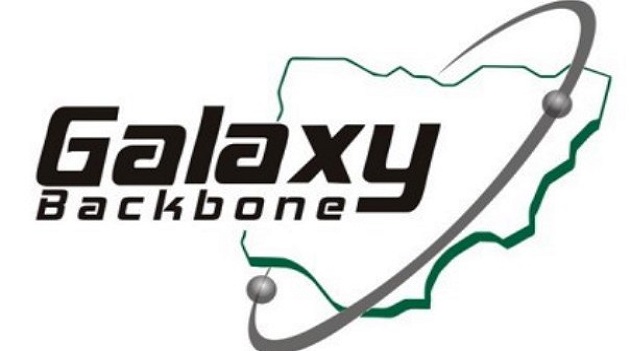General News
FG Votes N1.56Bn for New Plane as Domestic Airlines Shrink

The federal government has made provisions for a new plane in the presidential fleet bringing to 11 the number of planes at the becks and calls of the federal government, according to a report by The Nation.
The new plane is coming at a time when the declining fortunes of the domestic airlines have made Presidential Air Fleet larger than the fleets of three domestic airlines combined.
Chanchangi, MedView, and FirstNation airlines, all have one aircraft; Medview Airlines, three; while FirstNation has two.
IRS Airlines, with five aircraft in its fleet, has only one that is currently operational. The four others have been sent overseas for routine maintenance for a long time now.
But the new Presidential plane is a Gulfstream and is expected to cost about N8 billion, according to industry sources
The Nation newspaper reported that the plane is to attract a N1.52million deposit, going by the 2014 budget.
The aircraft is expected to cost about N8 billion, according to industry sources.
The rest of the payment will be spread over one, two or three years before the jet is built and delivered.
The expenditure is part of the projected spending contained in next year’s estimate, which was laid before the National Assembly last week by Dr. Ngozi Okonjo-Iweala, Finance Minister
These items include: the completion of a hanger, N405,500,000; Tyre bay tools and equipment N106,000,000; Towberless tow tractor for aircraft towing for N58,740,000; hanger sweeper N31,870,000; luggage conveyor belt truck N28,898,000; and Harlan tow tug for aircraft equipment towing N27,590,000.
Others are CCTV and surveillance equipment for N18,000,000; aircraft tools and equipment N11,480,000; battery workshop equipment N5,050,000; complete tool box for general works and vehicles N360,000; heavy duty crocodile jacks N300,000; aluminum ladder N285,000; safety boots N52,500 and foldable ladder, N50,000.
The aircraft in the fleet of the PAF include two Falcon 7X jets, two Falcon 900 jets, a Gulfstream 550, one Boeing 737 BBJ (Nigerian Air Force 001 or Eagle One) being used exclusively by the President and a Gulfstream IVSP, one Gulfstream V, Cessna Citation 2 aircraft and Hawker Siddley 125-800 jet.
It is estimated that each of the Falcon 7X jets bought in 2010 cost $51.1 million. The Gulfstream 550 may have cost $53.3 million.
However, none of the aviation industry Bluebooks will give the simple calculation accuracy of how much an aircraft really costs. A number of issues are responsible for the difficulty in presenting a clear figure for a make/model/year, of an aircraft to help accurately determine how much it really worth.
Some of the issues include: lack of central reporting of aircraft sales for either tax or licence requirements, the complexity of individual aircraft value calculations, the timing of sales (long timeframes from offer to closing during which time the market can go up or down substantially), multiple synchronous closings for jet aircraft in particular, international currency sales, and non-disclosure-of-price terms included in many transaction documents.
General News
Nigeria First Policy: FG Reaffirms Galaxy Backbone as ICT Provider

Federal government , through the Office of the Secretary to the Government of the Federation (OSGF), has issued a circular reaffirming its commitment to leveraging the substantial investment in the National Information Communications Technology Infrastructure Backbone (NICTIB), for the benefit of Ministries, Departments and Agencies (MDAs).

Chidi Okpala, spokesperson for Galaxy Backbone Ltd, disclosed this in a statement on Monday.
The directive, issued in line with the Nigeria First Policy, endorsed Galaxy Backbone Limited, as the designated provider of ICT infrastructure for federal government institutions.
Commenting, Professor Ibrahim Adeyanju, managing director, Galaxy Backbone Ltd, reiterated that the agency is well positioned to actualise the Nigeria First Policy in the country’s ICT sector.
“We have repositioned our organisation in such a way that the MDAs experience the quality, reliability, and innovation of our services, and they can see us as a partner in their digital transformation journey.
“Our pledge is to listen, collaborate, and provide tailored digital infrastructure solutions that meet the unique needs of each agency, while ensuring Nigeria’s data remains safe within our borders,” he said.
According to him, federal government MDAs are expected to accelerate Nigeria’s digital transformation and contribute directly to national economic growth through the implementation of the Nigeria First Policy.
Galaxy Backbone Ltd was established by the Federal Government with the core mandate of ensuring data sovereignty through a centralised e-government platform that offers secure connectivity and related ICT services.
General News
FG Reaffirms Galaxy Backbone as Its ICT Infrastructure Provider Under Nigeria First Policy

The Federal Government, through the Office of the Secretary to the Government of the Federation (OSGF), has issued a circular reinforcing its commitment to leveraging the substantial investment in the National Information Communications Technology Infrastructure Backbone (NICTIB) for the benefit of Ministries, Departments, and Agencies (MDAs).

This directive, in line with the Nigeria First Policy, endorses the use of Galaxy Backbone Limited (GBB) as the designated provider of ICT infrastructure for Federal Government Institutions, covering IP-network services, data centre hosting, and related infrastructure solutions.
GBB was established by the Federal Government with the core responsibility of ensuring data sovereignty through a centralized e-government platform that offers secure connectivity and related ICT services. Over the years, the organization has consistently invested in upgrading its capacity, achieving multiple international certifications and recertifications that position it as a provider of world-class, secure, and reliable technology services.
With this renewed endorsement, GBB is also officially positioned as the Government Data Exchange Platform and the interoperability layer for the nation’s Digital Public Infrastructure implementation, reinforcing its role as the body that coordinates, manages, and integrates all federal digital infrastructure and services, ensuring they comply with Nigeria’s data sovereignty goals and work harmoniously as part of the nation’s digital public Infrastructure.
While this directive ensures compliance with the Nigeria First Policy, GBB emphasizes that its mission is to deliver excellence through building trust and collaboration with Ministries, Departments and Agencies (MDA). Federal Government Institutions currently hosting data abroad are encouraged to migrate to GBB’s secure platforms, confident in the assurance of improved service delivery, enhanced security, and alignment with global best practices.
“We have repositioned our organisation in such a way that the MDAs experience the quality, reliability, and innovation of our services and they can see in us as a partner in their digital transformation journey,” said Professor Ibrahim Adeyanju, Managing Director/CEO, GBB.
He further reiterated; “Our pledge is to listen, collaborate, and provide tailored digital infrastructure solutions that meet the unique needs of each agency, while ensuring Nigeria’s data remains safe within our borders.”
GBB’s commitment is rooted in service excellence, security, and innovation; principles backed by its ISO certifications and global standard operating frameworks. This renewed collaboration between GBB and MDAs is expected to accelerate Nigeria’s digital transformation and contribute directly to national economic growth.
General News
Virtual Reality in Healthcare: Nigeria’s Untapped Opportunity for Training, Patient Care, and Medical Innovation

Across the world, Virtual Reality (VR) is proving to be far more than a gaming technology. In healthcare, it is emerging as a practical solution to train professionals, improve patient care, and speed up medical innovation. For Nigeria — where health facilities face workforce shortages, infrastructure gaps, and tight budgets — VR offers a unique chance to leapfrog into modern practices without the prohibitive cost of traditional methods.

Training Without Risk, Learning Without Limits
One of the biggest hurdles in healthcare is preparing professionals for real-life emergencies. Nursing students can read about procedures in textbooks, but they need hands-on experience to master them. VR bridges this gap by simulating real hospital scenarios: inserting an IV line, performing CPR, or managing a trauma patient — all in a safe, repeatable virtual environment.
Emergency response teams can also rehearse disaster situations, from mass-casualty events to fire outbreaks, without risking lives or resources. Instead of waiting for rare live drills, responders can practice repeatedly in lifelike VR settings until every step becomes second nature.
Across Nigeria, a new wave of innovators, like Insightful3d Studio, is developing these immersive training programs locally. By building high-quality VR modules tailored for Nigerian hospitals, universities, and teaching centers, they reduce dependence on expensive foreign programs and make advanced training more affordable.
Improving Patient Understanding and Confidence
VR isn’t just for training staff. Patients can also benefit. For example, a woman preparing for childbirth can take a guided virtual tour of a delivery room to reduce anxiety. A family deciding on surgery can visualize what the procedure involves and better understand the risks and benefits. When people clearly see what to expect, trust in medical care increases — and so do positive outcomes.
A Platform for Local Innovation
VR also allows medical teams in Lagos or Abuja to collaborate seamlessly with specialists abroad. They can jointly review virtual models of medical cases, discuss treatment options, and learn new techniques in real time. For research institutions and pharmaceutical companies, VR provides an interactive environment to test ideas faster and with fewer physical resources.
Nigeria’s Window of Opportunity
Globally, VR in healthcare is growing rapidly — projected to become a multi-billion-dollar industry this decade. Nigeria does not need to be a latecomer. With forward-thinking hospitals, training schools, and government support, the country can develop home-grown solutions instead of importing them at high cost.
Companies like Insightful3d Studio are proving that this is not futuristic wishful thinking — it is already happening. The real question is not whether VR belongs in Nigerian healthcare, but how quickly hospitals, regulators, and investors will adopt it. Early movers will improve patient outcomes, cut training costs, and set a new standard for African healthcare.

 Telecom2 days ago
Telecom2 days agoNCC Launches Nationwide Campaign to Defend Nigeria’s Digital Lifelines

 General News2 days ago
General News2 days agoNCC Moves to Protect Consumers, Enforce Accountability in Telecoms

 News2 days ago
News2 days agoCAC Delists 247 Firms Over Invalid Registration Claims

 General News2 days ago
General News2 days agoSamsung Launches the Sleek and Durable Galaxy A07 in Nigeria

 Telecom2 days ago
Telecom2 days agoGufwan Commends NCC for Sensitisation Workshop on Digital Citizenship for Persons with Disabilities

 General News2 days ago
General News2 days agoNGF Plans Investopedia to Showcase Investments in 36 States

 Telecom13 hours ago
Telecom13 hours agoNCC Claims to Have Eliminated Unregistered SIMs from Telecoms Networks

 Telecom13 hours ago
Telecom13 hours agoMTN Group Restructures Executive Team, Appoints Toriola VP for Francophone Africa























